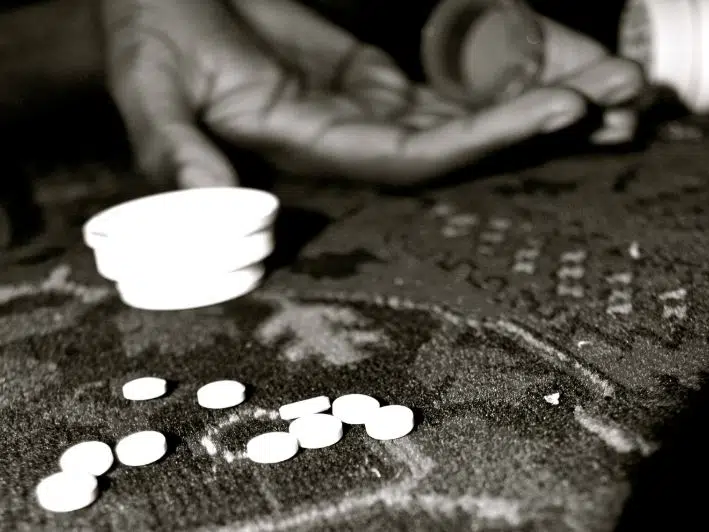
Registered and psychiatric nurses in B.C. will be able to prescribe safer drugs for people who are at risk of overdosing under a new public health order.
Provincial Health Officer Dr. Bonnie Henry’s order comes as B.C. experiences a record number of monthly overdose deaths during the COVID-19 pandemic, with closed borders being blamed for putting more toxic drugs on the streets.
Henry says new nursing standards will be introduced, along with training, education and access to expert consultation.
“We know the pandemic has only made the street drug supply in B.C. more toxic than ever, putting people who use drugs at extremely high risk for overdose,” she said. said. “Giving physicians and nurse practitioners the ability to prescribe safer pharmaceutical alternatives has been critical to saving lives and linking more people to treatment and other health and social services.”
More than 5,000 people have fatally overdosed in B.C. since the province declared a public health emergency in 2016, but the number of deaths were declining before COVID-19.
Only doctors and nurse practitioners have been able to prescribe drugs, including substitute medications for illicit-drug users as an alternative to potentially deadly substances on the street.
“Registered nurses and registered psychiatric nurses will need training in order to do this and the initial number of people might not be huge but it will certainly expand over time. I can tell you that this is being acted on with the utmost urgency both developing the clinical guidance and the training,” Mental Health and Addictions Minister Judy Darcy told NL News.
She says the criteria under which someone could be prescribed a safer drug substitute is also being expanded.
“Previously you needed to be at risk of COVID-19 and at risk of overdose. So now being at risk of overdose is the only criteria,” noted Darcy.
Guy Felicella, a peer clinical advisor with the BC Centre on Substance Use says the move will provide a lifeline to people who use drugs.
“It says to them that their lives matter and offers hope to them, their families and their communities,” he added.
“Now the work begins to move forward with building a system of care that connects people to harm reduction, treatment and recovery — a system that meets people where they’re at, wherever they’re at, and offers multiple pathways to care.”
Felicella previously noted that governments past and present are all responsible for not having a strong plan to prevent overdoses from happening in the first place.
The latest data from the BC Coroners Service from July shows there were 175 suspected illicit drug toxicity deaths. In Kamloops, there have been 32 fatal overdoses in 2020, which has surpassed the total of 26 for all of 2019, with five months of data still to come.
The number of overdose deaths province-wide has now been more than 100 for five straight months. Prior to that, there were fewer than 100 overdose deaths in 13 out of 14 months, from January 2019 to February 2020.
– With files from the Canadian Press and Brett Mineer







